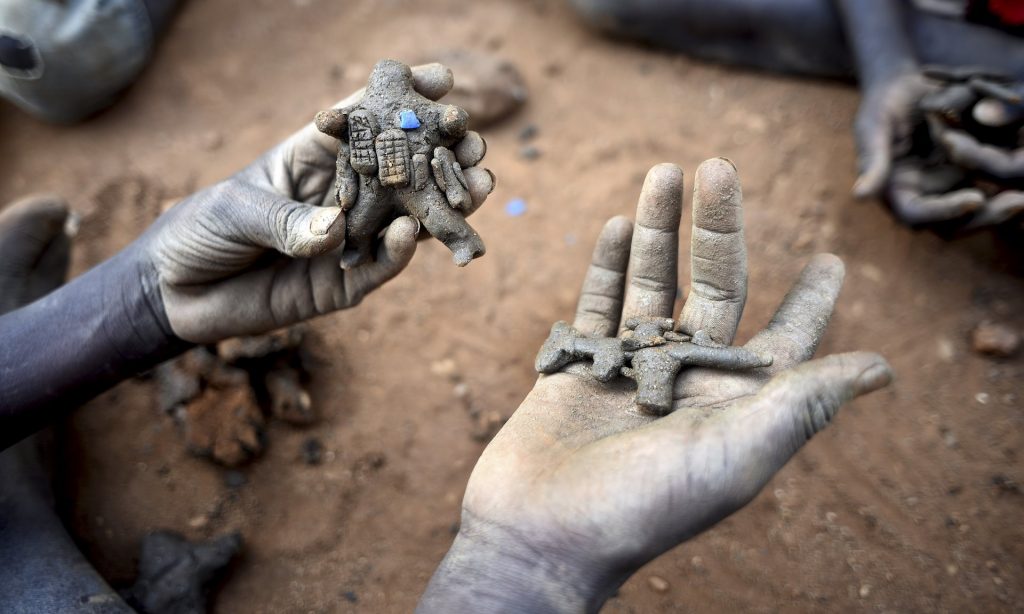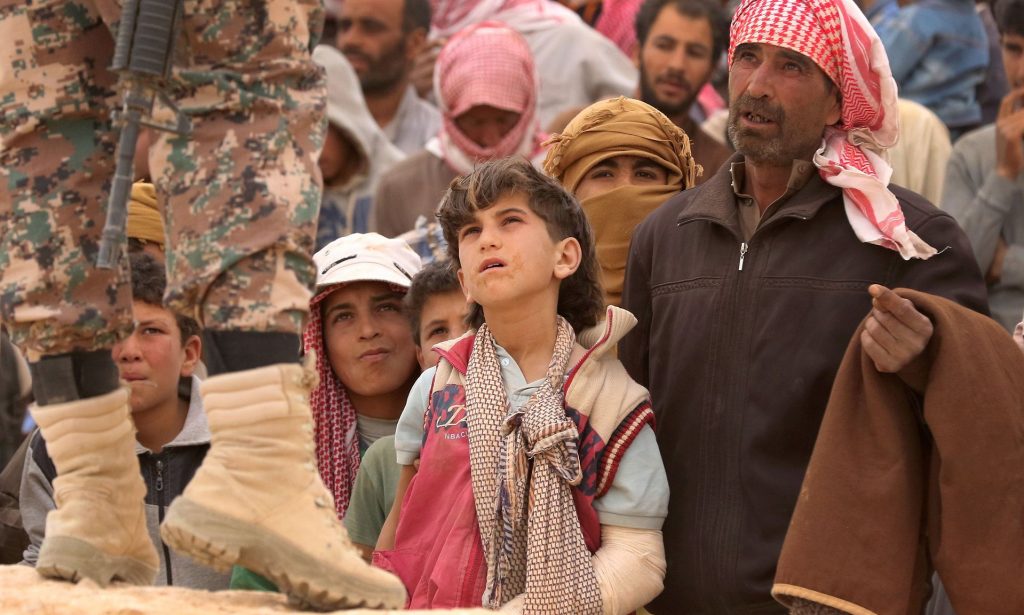
Photograph: Jason Patinkin/AP
As the UK heads towards Brexit, and reviews its place in, and relationships with, the wider world, it must not lose sight of its role in building peace.
Despite understandable anxiety, suspicion and mistrust today, British people are still likely to be living, some years from now, in a democratically governed, prosperous and peaceful UK. That is more than many citizens in other parts of the world, from Syria to parts of Mexico, can say. We need to keep things in perspective.
Conflict will be one of the most important issues of the coming decades, as demographic and environmental pressures, combined with the unmet expectations of growing numbers of dissatisfied people, place inadequate political institutions under stress. Inevitably, there is a risk of unrest, destabilisation and violence.
Last year, the UN commissioned a report on its role in peace-building, entitled the Challenge of Sustaining Peace (pdf). The study said that the UN had lost its way, and led to security council resolution 2282, which mandates the UN to rediscover its original role in sustaining peace.
This will not be easy, but the UK is well placed to support and shepherd the policy. It is a permanent security council member, a major financial contributor to the UN, an active proponent of sustainable development goal 16 on peace and the responsibility to protect, and its 2015 aid strategy (pdf) identifies building peace as a top priority.
The UK must back the UN’s efforts to reform, despite the obstacles that will be placed in its way by member states whose interpretation of their national interests means they are likely to block progress.
The recent election of Sweden – a country committed to peace-building – to the security council will give the UK a strong ally. The UK should also strengthen its political relationships with emerging economies – middle-income countries mainly in Asia and Latin America – which will be influential in determining the future of a liberal order.
The flow of migrants and refugees shows that borders don’t mean what they once did. During the next few years, the UN will need to revisit international conventions about what constitutes a refugee, and about how the global community can support those in need.

Photograph: Khalil Mazraawi/AFP/Getty Images
The UN will also – surely – have to accept that non-refugee migrants have a right to seek improved prospects away from their homes. The UK ought to have a strong voice in this debate, standing up for the disempowered by enshrining their rights in new conventions.
The UN is resistant to reform – all of its departments would claim they are already playing a peace-building role, rather than risk a loss of power and resources by conceding the need for more thorough reform. And this tendency will be exploited by, and exploit the fear among, member states that any commitment to a greater UN peace-building role implies their own loss of sovereignty with regard to conflicts within or near their borders.
Creating a modern vision of global citizenship to replace the migration and refugee conventions of a bygone era will be yet harder – as the EU’s political difficulties in dealing with migrants have shown.
The UK should take a lead not just in setting the terms of international debates, but through its own actions. This means taking in more refugees and reviewing the ways in which its own actions create or reduce the likelihood of instability elsewhere.
It is also time the UK reviewed and reset its relationships in the Middle East, where its support for harsh and unrepresentative regimes is surely storing up trouble.
This international position can be strengthened if we recognise the issues that divide (pdf) communities in the UK and in other parts of the EU, such as inequality and marginalisation, and have a strong vision to address them.
The UK is not leaving Europe, nor is it leaving the international community. It must not duck out of playing its part in helping to build a more peaceful and prosperous world, whenever that becomes possible.
Peace is more likely when people have access to opportunities, security, justice, education and health, and feel that this access is fair and takes into account the will of the people. Incremental – often very local – progress can be made, even in the most difficult conditions, and the UK can use its generous aid budget to provide support, and show others how to do the same.

